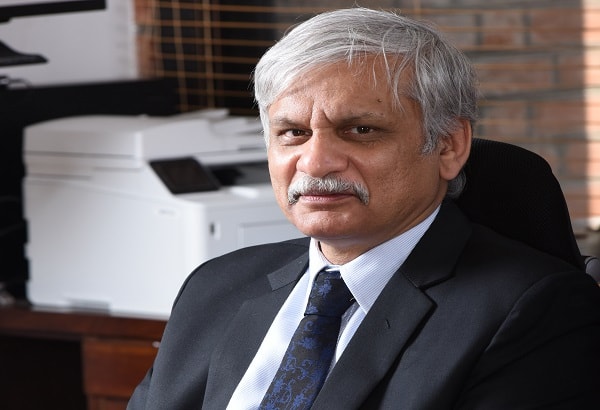"The IIM Act will give more autonomy; Act has put a lot more responsibility on us as an institute"
Abhay Anand | June 8, 2018 | 03:11 PM IST | 3 mins read

Prof. Errol D'Souza, Director, Indian Institute of Management Ahmedabad (IIM-A) speaks to Abhay Anand about changes in management education and how IIM Bill will impact the institute...
Q. The management education across the globe is going through a transformation phase, what changes are needed in the Indian management education to make it more robust?
A. In the past, mature corporate organizations used job rotation to endow managers with familiarity about different operations and prepare them for senior-level positions. As the pace of change has quickened there is an increasing emphasis away from experience as a way of inculcating managerial skills and towards formal training that provides the basis for firms to re-create their businesses on an ongoing basis.
Programs need to be broader and emphasize strong functional competence with the aim of developing managers who would further organizational goals.
The focus increasingly is on how to invest in opportunities in foreign markets as well as to train executives to work in cross-cultural environments. There has also been a greater emphasis on understanding the customer and what methods to adopt so as to provide increased value to them. The volatility and uncertainty that permeates markets necessitate an increased trend towards experiential or action learning for managers.
Q. The IIM Bill has finally seen the light of the day, what kind of effect it will have on the functioning of IIMs?
A. The IIM Act has been good for the IIMs as now there will be autonomy and a lot more questions can be asked of the institute. The Act has put a lot more responsibility on us as an institute, which is a good thing. The board is now accountable to the government and will have to work more closely to align itself with the interests of the institute. The only thing I wish is that they had removed the constraint of faculty salaries being tied up to the government salaries. Apart from that, the Act has given us a lot of freedom.
Q. How important is it for a B-School to have faculties with diversified experience of teaching, industry, research, consultancy, etc?
A. From my perspective, it is the foremost important thing to have faculties with diversified experience because as an institute, it is one of the vital aspects required for our student’s holistic development. A versatile panel of teachers from varied fields and industries will help them gain knowledge of every field and help provide perspective on different phenomena.
Q. You have been associated with the Institute for long and now at the helm, what are your future plans for IIMA?
A. We are going to spend a lot of time globalizing our footprint. We have too much demand from Indian corporates and so we have not got the space to think about how we can work elsewhere. We are now focusing on that as an important part of the institute's growth.
We wish to grow our faculty. Unlike earlier, where we invited people from outside, we are now going out and spending time with people abroad, working on projects and research ideas. Finally, we are looking at holding more specialized conferences at the institute. We are going out more into the external world, exploring how we can contribute. As a consequence, higher quality of work is getting done and higher quality researchers are visiting us. We also want to expose our students to new areas of business opportunities in biotech, cleantech, logistics for perishables and fast foods, new channels for delivery services, the importance of ethics, etc.
Along with working on all the aforementioned aspects, we are also focused on introducing new courses and improved areas of work to attract corporates. It is a fight to stay relevant and to grow the types of programmes we offer and work upon.
Follow us for the latest education news on colleges and universities, admission, courses, exams, research, education policies, study abroad and more..
To get in touch, write to us at news@careers360.com.